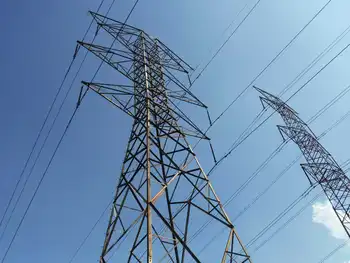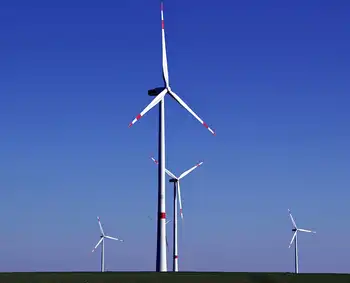BC Affordability & BC Hydro Bill Credits provide inflation relief and cost of living support, lowering electricity bills for families and small businesses through automatic utility credits and income-tested tax rebates across British Columbia.
Key Points
BC relief lowering electricity bills and offering rebates to help families and businesses facing inflation.
✅ $100 credit for residential BC Hydro users; applied automatically.
✅ Avg $500 bill credit for small and medium commercial customers.
✅ Income-based BC Affordability Credit via CRA in January.
The new B.C. premier announced on Friday morning families and small businesses in B.C. will get a one-time cost of living credit on their BC Hydro bill this fall, and a new B.C. Affordability Credit in January.
Eby focused on the issue of affordability in his speech following being sworn in as B.C.’s 37th premier, including electricity costs addressed by BC Hydro review recommendations that aim to keep power affordable.
A BC Hydro bill credit of $100 will be provided to all eligible residential and commercial electricity customers, including those who receive their electricity service indirectly from BC Hydro through FortisBC or a municipal utility.
“People and small businesses across B.C. are feeling the squeeze of global inflation,” Eby said.
“It’s a time when people need their government to continue to be there for them. That’s why we’re focused on helping people most impacted by the rising costs we’re seeing around the world – giving people a bit of extra credit, especially at a time of year when expenses can be quick to add up.”
Eby takes over as premier of the province with a growing number of concerns piling up on his plate, even as the province advances grid development and job creation projects to support long-term growth.
Economists in the province have warned of turbulent economic times ahead due to global economic pressures and power supply challenges tied to green energy ambitions.
The one-time $100 cost of living credit works out to approximately one month of electricity for a family living in a detached home or more than two months of electricity for a family living in an apartment.
Commercial ratepayers, including small and medium businesses like restaurants and tourism operators, will receive a one-time bill credit averaging $500 as B.C. expands EV charging infrastructure to accelerate electrification.
The amount will be based on their prior year’s electricity consumption.
British Columbians will have the credit automatically applied to their electricity accounts.
BC Hydro customers will have the credit applied in early December. Customers of FortisBC and municipal utilities will likely begin to see their bill credits applied early in the new year.
‘I proudly and unreservedly turn to the tallest guy in the room’: John Horgan on David Eby
The B.C. Affordability Credit is separate and will be based on income.
Eligible people and families will automatically receive the new credit through the Canada Revenue Agency, the same way the enhanced Climate Action Tax Credit was received in October.
An eligible person making an income of up to $36,901 will receive the maximum BC Affordability Credit with the credit fully phasing out at $79,376.
An eligible family of four with a household income of $43,051 will get the maximum amount, with the credit fully phasing out by $150,051.
This additional support means a family of four can receive up to an additional $410 in early January 2023 to help offset some of the added costs people are facing, while EV owners can access more rebates for home and workplace charging to reduce transportation expenses.
“Look for B.C.’s new Affordability Credit in your bank account in January 2023,” Eby said.
“We know it won’t cover all the bills, but we hope the little bit extra helps folks out this winter.”
Eby’s swearing-in marks a change at the premier’s office but not a shift in focus.
The premier expects to continue on with former premier John Horgan’s mandate with a focus on affordability issues and clean growth supported by green energy investments from both levels of government.
In a ceremony held in the Musqueam Community Centre, Eby made a commitment to make meaningful improvements in the lives of British Columbians and continue work with First Nations communities, with clean-tech growth underscored by the B.C. battery plant announcement made with the prime minister.
The ceremony was the first-ever swearing-in hosted by a First Nation in British Columbia.
“British Columbia is a wonderful place to call home,” Eby said.
“At the same time, people are feeling uncertain about the future and worried about their families. I’m proud of the work done by John Horgan and our government to put people first. And there’s so much more to do. I’m ready to get to work with my team to deliver results that people will be able to see and feel in their lives and in their communities.”
Related News












